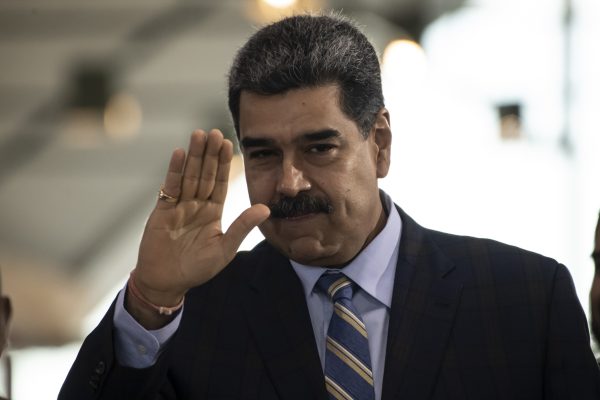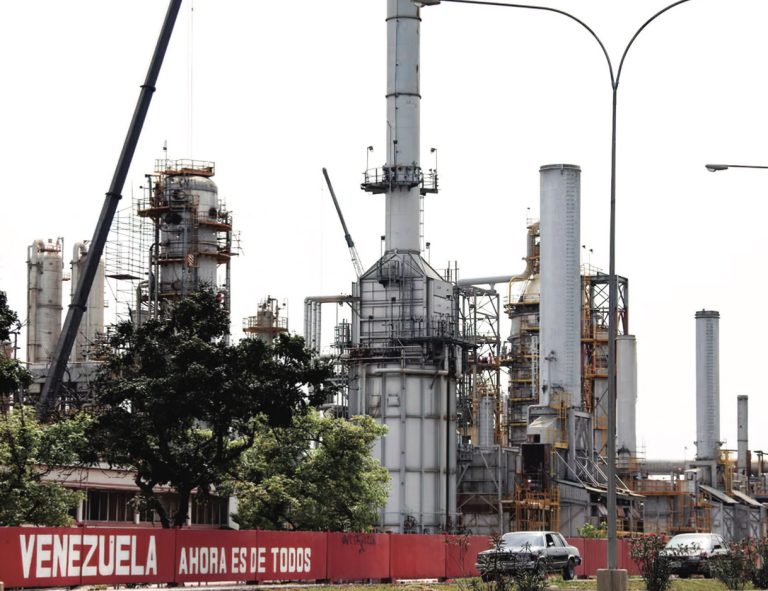According to the Washington Post, the Biden administration is considering easing sanctions on Venezuela’s oil sector should Venezuela’s president, Nicolás Maduro, agree to hold competitive elections in 2024.
Citing two people familiar with the matter, the Washington Post wrote, “The Biden administration and the Venezuelan government of President Nicolás Maduro have agreed to a deal in which the United States would ease sanctions on Venezuela’s oil industry and the authoritarian state would allow a competitive, internationally monitored presidential election next year.”
However, a U.S. official said that no commitment has been made by either party, “The administration has been clear — we support a Venezuelan-led negotiation and are prepared to provide sanctions relief in response to concrete actions toward competitive elections,” the official said anonymously.
Should a deal be reached, it will not include any plans to unfreeze Venezuelan assets in the U.S. and if any sanctions are lifted they will be structured in a way that they can be easily reimposed should Maduro not make good on his commitments, the Washington Post reported.
The sanctions were first levied by the Trump administration in 2019, a move that was supported by Antony Blinken, Biden’s Secretary of State at the time.
READ MORE:
- Earthquake in Western Afghanistan Kills 2,400
- War and Unrest Threatening Globalization, WTO Chief Says
- Germany Hopes to Build Bonds With Central Asian Leaders
Crippling sanctions
Success
You are now signed up for our newsletter
Success
Check your email to complete sign up
The sanctions had a crippling effect on Venezuela’s oil sector, which saw crude oil imports from the country drop from 634,000 barrels per day in January 2019 to just 11,000 barrels per day by the following May, according to the Energy Information Administration.

In 2018, the U.S. was importing around 586,000 barrels of oil per day from Venezuela.
With word of a possible deal, oil futures fell more than $1 a barrel on Monday with Brent crude futures settling at $89.65 a barrel, down $1.24, or 1.4 percent and West Texas Intermediate crude (WTI) falling $1.03, or 1.2 percent, finishing the day off at $86.66 a barrel.
Even if a deal is reached it could be some time before Venezuela’s oil sector would see any real benefit as a significant amount of investment in the sector would be needed in order to bring production back up to pre-sanction levels.
William Jackson, chief emerging markets economist for Capital Economics, told Reuters, “But the sector requires enormous investment to return output to the levels seen only a decade ago.”
Venezuela does have oil reserves that could be unleashed should a deal be reached — providing much relief for the socialist nation — however questions remain whether the country’s energy infrastructure is in a state to support more production.
Andrew Lipow, president of Lipow Oil Associates told Reuters, “Negotiations with Venezuela could lead to a surge in exports of crude oil that is already in inventory. But, a surge in production is a ways off given the decrepit state of the Venezuelan energy infrastructure.”
READ MORE:
- US Faces Host of Economic Troubles as Growth Slows in Europe, China
- Trump on Trial: What to Know About Trump’s Legal Woes in New York State
- US Lawmakers Pledge Support for Israel as Backing for Ukraine Comes Into Question
Possible deal met with skepticism
After learning of the possible deal, Republican Sen. John Barrasso took to X (formerly Twitter) to blast the development.
“America should never beg for oil from socialist dictators or terrorists. For the sake of our energy workers and our allies, @JoeBiden must work with us to unleash American energy,” he posted.
Alaskan senator, Dan Sullivan, also took to X to criticize the development, posting on Oct. 16, “Apparently Biden plans on lifting oil sanctions for Venezuela tmrw. Are you kidding me??” adding that, “What will it take for this admin to learn that appeasing dictators does not work? Joe Biden is making the world more dangerous & killing American energy security in the process!”
Venezuela sits on the world’s largest oil reserves and in the late 1990s was producing a staggering 3 million barrels of crude per day and exporting 1.8 million barrels per day to the United States, according to the U.S. Energy Information System.
However, following the 2014 oil crash, “Venezuela descended into chaos with hyperinflation, severe shortages of most goods, fighting on the streets, and many people fleeing to other countries,” Energy Strategy Reviews wrote in 2019.
Many fleeing the chaos in Venezuela ended up in the United States.
Currently, hundreds of thousands of Venezuelans are in the country seeking asylum, prompting the Biden administration to provide approximately 472,000 of them with Temporary Protected Status (TPS) for a period of 18 months in a bid to allow them to provide for themselves and to lessen the burden on municipalities struggling under the weight of providing for the influx of migrants.
















